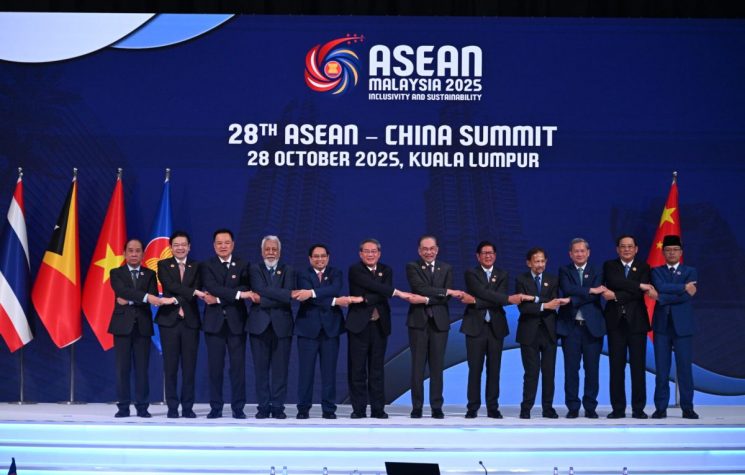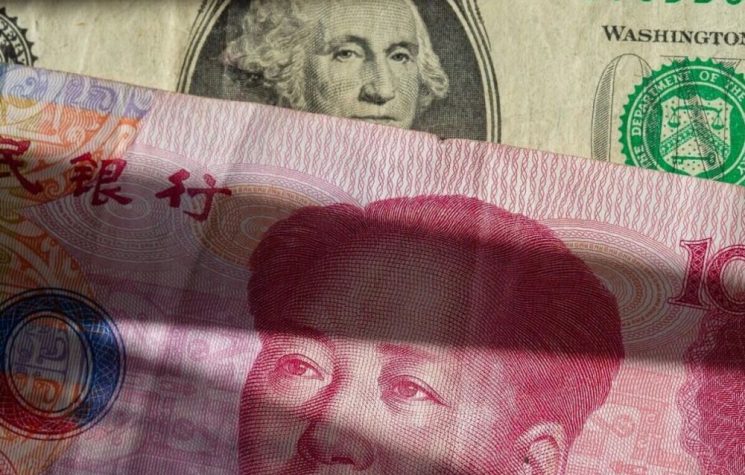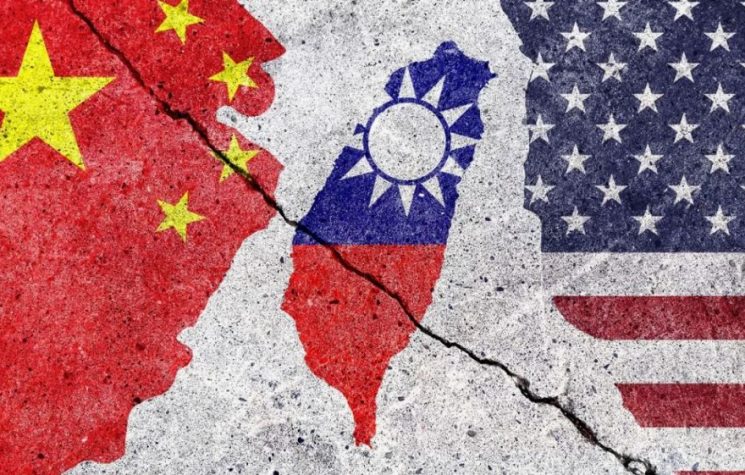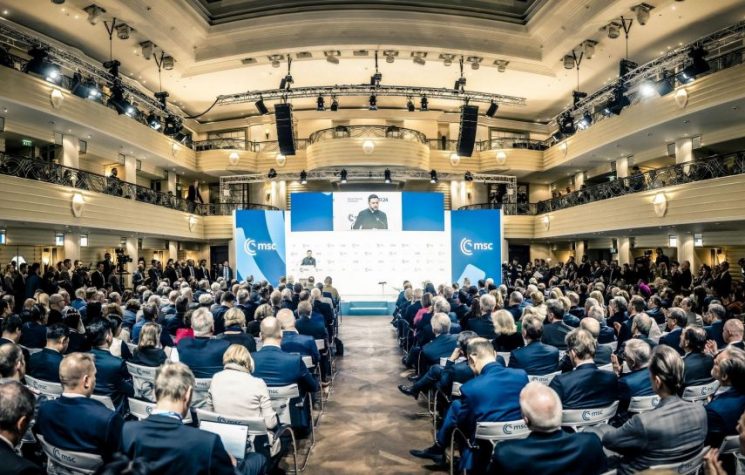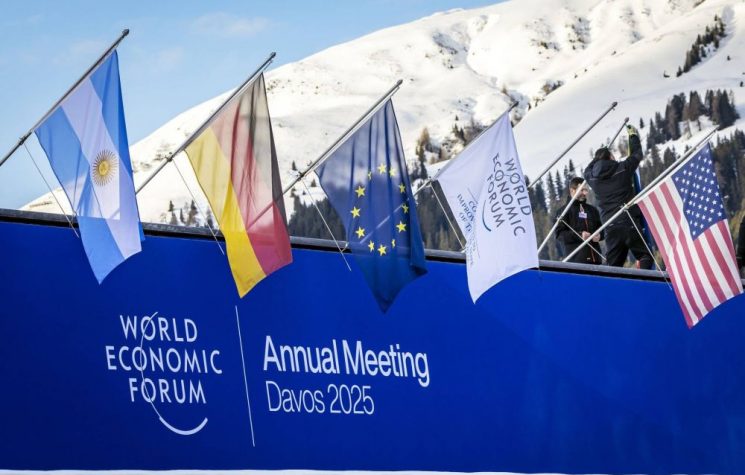Who knows if, when people find themselves fighting for a piece of bread, they will understand that it will not be politicians who will change the conditions of this slavery.
Contact us: info@strategic-culture.su
Exactly the wrong moment
Given the current state of geo-economic balances in the West, I see US tariffs coming like a bolt from the blue. This is no small problem, considering that the economic situation in Europe is already notoriously dire and in a phase of rapid and inexorable decline towards absolute nothingness. Even more problematic is the fact that the tariffs come just as the European Commission was boasting of wanting to invest €800 billion to wage war on Russia. In short, the timing is decidedly bad.
Let’s take stock of the situation.
The US government imposes tariffs, the next day the markets plummet, China responds, another day passes and Trump removes them, then they come back again. In the meantime, speculation has skyrocketed and those who were going to take advantage of it have done so. Obviously, Europe was not on the list of lucky lottery winners.
What is happening is worse than expected because, while it is true that tariffs are used more or less as sanctions, and therefore as a deterrent, it is equally true that they are usually applied against adversaries, enemies or, at most, the most brazen competitors, but not against one’s own “allies” (=subjects), and it is precisely this logic that should make European states reflect on the truth of the political relationship between the US and Europe.
So, what to do?
The tariffs introduced by Donald Trump mark a new chapter in economic relations between Europe and the United States, breaking sharply with the free trade policies that have dominated the last thirty years. April 2, 2025, has been renamed “Liberation Day” by the US president, symbolizing the US’s abandonment of its globalist approach to trade and the adoption of protectionism aimed at correcting what Washington considers structural imbalances that are damaging the US economy. This is not the first time this has happened in America, as we know, but the blow has come at a time when the EU is facing huge war expenses. All this seems almost like an assist to Russia.
This is not the first time Trump has resorted to tariffs: during his first term, he had already started a trade war with China. This time, however, the attack is more structured and on a much larger scale. Around 60 countries are being targeted by the United States, with tariffs ranging from 20-25% for Europe to 54% for China. The measures will come into force in two stages: on April 5 with a 10% general tariff and then on April 9 with different rates for individual countries.
By adopting customs tariffs of between 20% and 25% on goods from the European Union, the United States is setting the global economy back decades, to the protectionism and isolationism of the 1930s.
The European Union could pay a heavy price for these measures: GDP is expected to fall twice as much as in the US, by 0.4% compared to 0.2%. And this is where an interesting detail can be observed: the country that will suffer most from this decision is Germany, the very country chosen to lead the Rearm Europe initiative. Officially, the automotive sector has been hit, but in general, the entire production and supply chain of the metalworking sector will suffer. In short, Rheinmetall will have difficulty producing both Volkswagen compact cars and tanks to conquer Moscow.
What will the EU do?
The European Union has said it is ready to respond, but will first try the diplomatic route, hoping that someone in Washington will be willing to listen.
Brussels could introduce tariffs worth up to €26 billion on US goods as early as April 12. Ursula Von der Leyen has said that Europe remains open to dialogue, but warned that raising tariffs ultimately hurts everyone by driving up global prices.
Clearly, the current preferred option for European governance is to fight back – with the pious hope that it will succeed. They will have to consider whether to give up and change monetary policy, taking advantage of the introduction of the digital euro (which will be operational in October and will be a powerful tool for social control). Alternatively, Brussels could introduce tariffs worth up to €26 billion on US goods as early as April 12. Ursula Von der Leyen has stated that Europe remains open to dialogue, but warned that raising tariffs ultimately hurts everyone by driving up global prices.
As suggested by Tagliamacco, this could be a historic opportunity for the EU to break free from American influence and open up to alternatives, but the European scenario looks bleak. The economic crisis afflicting the continent, which is likely to worsen, could be addressed in two ways if there were a different ruling class. The first way is to strengthen relations with China. Italy’s exit from the Silk Road was a short-sighted decision: it is crucial to maintain solid relations with Beijing in order to stimulate trade. Similarly, ties with Russia, from which Europe received gas at more advantageous prices than those offered by the US, should be restored.
The second way is internal: reviving consumption. Since the late 1990s, real wages have remained depressed, dampening domestic demand. Italy needs to rebuild its domestic market, increase incomes, and stimulate spending. To do this, it needs a strong social bloc capable of countering ordoliberalism, which has led to widespread impoverishment in the country.
In order to revive relations between the European Union and China, it is essential to overcome the strong differences linked to China’s huge trade surplus and the obstacles limiting access to its domestic market. According to the newspaper, Europe is also concerned about Beijing’s continued support for Russia in the war in Ukraine.
China has recently sent trade missions to several European capitals, while its industries are considering redirecting some of their exports to European markets. EU leaders have also publicly expressed their intention to strengthen bilateral cooperation, in stark contrast to previous calls to ‘reduce risks’ associated with dependence on Chinese supply chains.
Very soft, not too powerful
What should give us pause for thought is the political significance of this action.
The US is trying to send a clear message to the whole of Europe, both to its leaders and its citizens. The former are being told clearly, through subtle language, that certain international choices are not welcome.
The US wants to have dominance in its relations with Russia and China, while being ready to send Europeans to war without a second thought. Furthermore, it is being pointed out that the euro was created to keep the European continent under the hegemony of the dollar, so any attempt to diversify the monetary structure of member countries is to be considered “dangerous” and “inappropriate.” The United States has already lost enough commercial ground; losing Europe as well is certainly not one of the best options to pursue. European leadership is not omnipotent and, above all, does not rule in its own house.
They seem to want to communicate to citizens that there are changes taking place among the powers that be, so a certain amount of “cooperation” will be welcome and will lead to pleasant approval and rewards from the master across the ocean. Certainly, Europe must not go hand in hand with Russia and all the other super-evil monsters of Asia.
In short, Europe, once again, finds itself not only unprepared, but a victim of its subjugation to American imperialism, after that of Britain.
Who knows if, when people find themselves fighting for a piece of bread, they will understand that it will not be politicians who will change the conditions of this slavery.














